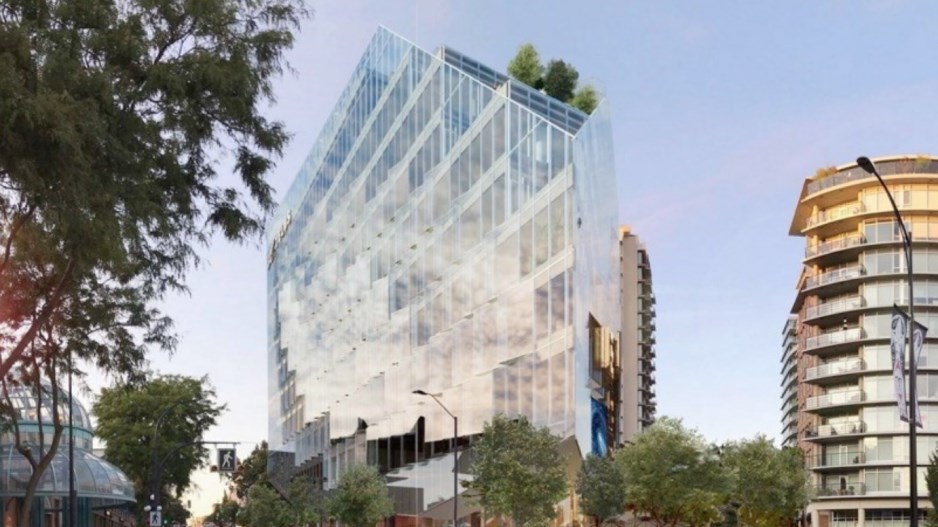Almost all new construction in Victoria, B.C., – from single-family homes to office and residential towers – will be required to be “zero carbon” producers by 2025, meaning they can’t be heated with fossil fuels such as natural gas, propane or fuel oil.
Citing concern about climate change and pollution, Victoria council has made the decision to accelerate the reduction of greenhouse gases in new buildings five years ahead of provincial requirements.
Victoria is among the first municipalities in the province to make the move for new construction, transitioning from fossil fuels to renewable energy. For most projects, that will likely mean using electricity to power equipment for space heating, water heating, cooking and drying clothes.
The decision comes ahead of the province’s new building code and pollution guidelines, to be announced later this year.
Saanich and Central Saanich councils are considering a similar move. All three municipalities have had engagement processes with developers and builders. The Capital Regional District is supporting early adoptions of the plans.
“Buildings account for nearly half of all greenhouse gas pollution generated in the city,” Mayor Lisa Helps said in a statement Monday.
“Each new building will last more than 50 years, so raising the bar now is critical to meeting our long-term climate goals, and to preparing the taxpayers of the future to have less climate-related costs down the road.”
Laura Berndt, manager of energy and climate action for the City of Victoria, said the no-fossil-fuels requirement for new buildings is part of a plan to reduce greenhouse gases by 80 per cent and move to 100 per cent renewable energy by 2050.
She said the measure was one of four priority actions – along with mobility, waste reduction and municipal operations – to drive down emissions.
Victoria council declared a climate emergency in 2019.
The province’s carbon pollution standards are new regulations that are expected to be added to the provincial Step Code in December.
It will provide local governments with the ability to limit greenhouse emissions from new construction.
A city staff report said a series of discussions with the building and development industry yielded several concerns about electrifying new buildings, including the availability of appropriate equipment and expertise, cost increases, design challenges and having access to enough electricity.
Several cities in the U.S., including New York City, are adopting no-fossil-fuel rules for new buildings.
In addition to cost and supply issues for electricity, concerns have also been raised about restaurants in new buildings not being able to cook with natural gas, and people being blocked from making their own choices about the types of energy they want to buy.
Some states, including Texas, are seeking to ban any policies that limit use of natural gas.
Then there is the mixed message of banning natural gas in the capital city of a province which is attempting to become a major global producer and exporter of natural gas.




